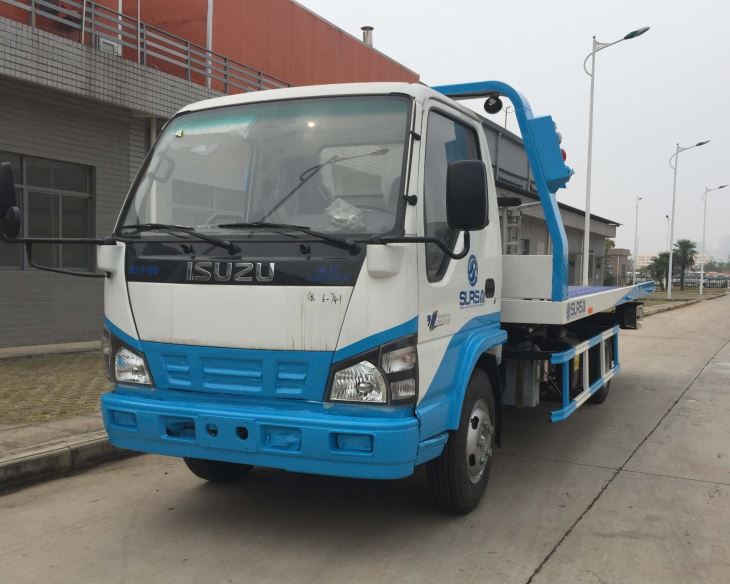All You Need to Know About Non CDL Dump Trucks: A Comprehensive Guide

A non CDL dump truck is an essential asset in various industries, particularly construction and landscaping. These trucks offer significant advantages in terms of versatility and ease of access, perfect for local jobs where regulations can often be cumbersome. In this comprehensive article, we’ll delve deeper into everything related to non CDL dump trucks—from what they are, their benefits, and how they differ from CDL trucks, to practical tips for buying and operating one effectively.
What is a Non CDL Dump Truck?
A non CDL dump truck is a type of dump truck that does not require a Commercial Driver’s License (CDL) to operate. Typically, these vehicles have a gross vehicle weight rating (GVWR) of 26,000 pounds or less, making them more accessible for smaller trucking companies and individual operators. These trucks can be used for transporting materials such as gravel, sand, and debris, and they are ideal for smaller projects that do not require the heavy-duty capabilities of larger CDL trucks.
Key Features of Non CDL Dump Trucks
- Weight Capacity: Typically under 26,000 pounds.
- Engine Types: Available in gasoline and diesel options.
- Dump Bed: Various sizes, typically ranging from 6 to 10 cubic yards.
- Maneuverability: Easier to navigate in tight spaces compared to larger trucks.
Benefits of Using Non CDL Dump Trucks
Non CDL dump trucks offer several benefits that make them a popular choice among various industries. Below are some of the key advantages:
1. No CDL Required
As the name suggests, the primary benefit of non CDL dump trucks is that no special commercial license is required to drive one. This opens up opportunities for contractors, landscapers, and small business owners who might not want to go through the process of obtaining a commercial driver’s license.
2. Cost-Effective
Non CDL dump trucks are generally less expensive than their CDL counterparts. This makes them an attractive option for small businesses looking to manage costs without sacrificing capability.
3. Versatile Applications
These trucks are useful for a range of applications, including residential trash hauling, landscaping, and small construction projects. Their flexibility allows operators to tackle various jobs efficiently.
4. Easier to Maneuver
Being lighter and generally smaller than other dump trucks, non CDL models can navigate through tighter spaces and urban environments, making them perfect for jobs in crowded areas.
5. Reduced Insurance Costs
Insurance rates for non CDL trucks are generally lower than those for CDL trucks, which can lead to significant savings over time.
Comparing Non CDL and CDL Dump Trucks
| Feature | Non CDL Dump Truck | CDL Dump Truck |
|---|---|---|
| License Required | No | Yes |
| Weight Capacity | Under 26,000 lbs | Over 26,000 lbs |
| Cost | Generally lower | Generally higher |
| Applications | Residential, Light Commercial | Commercial, Heavy-Duty Projects |
| Insurance | Typically lower | Typically higher |
Types of Non CDL Dump Trucks
Understanding the types of non CDL dump trucks can help businesses select the right vehicle for their specific needs. Here are the most common types:
1. Standard Dump Trucks
Standard dump trucks consist of a chassis and a dump body that can be raised for unloading. They vary in size but typically hold between 6 to 10 cubic yards of material.
2. Landscape Dump Trucks
These trucks are specifically designed for the landscaping industry. They usually come with a higher sidewall and can accommodate more loose material. They are commonly used for hauling mulch, topsoil, and gravel.

3. Flatbed Dump Trucks
A flatbed dump truck provides versatility for hauling various equipment and materials. The flatbed allows for easy loading and unloading, making it an excellent option for contractors.
How to Choose the Right Non CDL Dump Truck
Choosing the right non CDL dump truck depends on various factors. Here are some practical tips to help you make an informed decision:
1. Determine Your Hauling Needs
Evaluate what materials you’ll be hauling and the weight involved. This will help you select a truck with the appropriate capacity.
2. Consider Your Budget
Look for trucks within your budget. Remember that additional expenses such as insurance, maintenance, and fuel should also be factored into your overall cost.
3. Assess Comfort and Usability
Look for features like easy-to-use controls, comfortable seating, and good visibility. A truck that is easy to operate can significantly improve productivity.
4. Check for Reliability and Reviews
Research different brands and models. Look for reviews from other users to gauge how reliable and efficient they are.
5. Inspect for Maintenance and Warranty
Ensure the truck has a clear maintenance history. A warranty can provide peace of mind regarding repairs and potential issues.
Operating a Non CDL Dump Truck: Tips & Best Practices
1. Understand Local Regulations
While you may not need a CDL, other local regulations concerning dump trucks still apply. Familiarize yourself with weight limits and zoning laws in your area.
2. Perform Regular Maintenance
Routine checks on brakes, lights, fluid levels, and tires can help prevent breakdowns and ensure safety.
3. Load Properly
Be cautious about weight distribution when loading materials. Uneven loads can make the truck less stable and harder to control.
4. Use Safety Gear
Always wear the appropriate safety gear when operating the truck. This includes protective eyewear, gloves, and a hard hat when necessary.
5. Practice Defensive Driving

Keep a safe distance from other vehicles and be vigilant of your surroundings. Defensive driving can help avoid accidents.
Financing and Insurance Options for Non CDL Dump Trucks
Understanding the financial aspects is crucial when investing in a non CDL dump truck. Here’s what you need to know:
1. Financing Options
Many dealers offer financing plans to ease your purchase. Options may include traditional loans from banks, credit unions, or dealer-assisted financing.
2. Insurance Considerations
Insurance for non CDL trucks generally requires a liability policy. Factors such as your driving experience, the truck’s value, and your business type will influence your premium rates.
3. Tax Deductions
Consult with a tax professional regarding potential deductions related to your non CDL dump truck, as some expenses may be tax-deductible for business use.

Common Mistakes to Avoid When Purchasing a Non CDL Dump Truck
- Not Evaluating Needs: Failing to assess your hauling needs can lead to purchasing an unsuitable vehicle.
- Ignoring Vehicle Inspection: Skipping a thorough inspection can result in costly repairs later.
- Overlooking Finance Terms: Not reading the financing terms can lead to hidden fees and conditions.
- Neglecting Test Drives: Always take the truck for a test drive to evaluate its performance and comfort before purchasing.
FAQs About Non CDL Dump Trucks
1. What qualifies as a non CDL dump truck?
A non CDL dump truck is a vehicle with a gross vehicle weight rating (GVWR) of 26,000 pounds or less, which can be operated without a commercial driver’s license.
2. Can I use a non CDL dump truck for commercial purposes?
Yes, non CDL dump trucks can be used for various commercial purposes, including landscaping, small construction jobs, and local deliveries.
3. What are the advantages of a non CDL dump truck over a CDL one?
Non CDL trucks are easier to operate without special licensing and are often more affordable in terms of purchase price, insurance, and maintenance costs.
4. How do I maintain my non CDL dump truck?
Regular maintenance includes checking fluid levels, brakes, tires, and conducting routine inspections to ensure reliability and safety.
5. Are there financing options available for non CDL dump trucks?
Yes, many dealerships offer financing plans, and you can also explore loans from banks and credit unions.
6. What should I consider when loading my non CDL dump truck?
Ensure proper weight distribution and do not exceed the weight limit to maintain vehicle stability and control.
